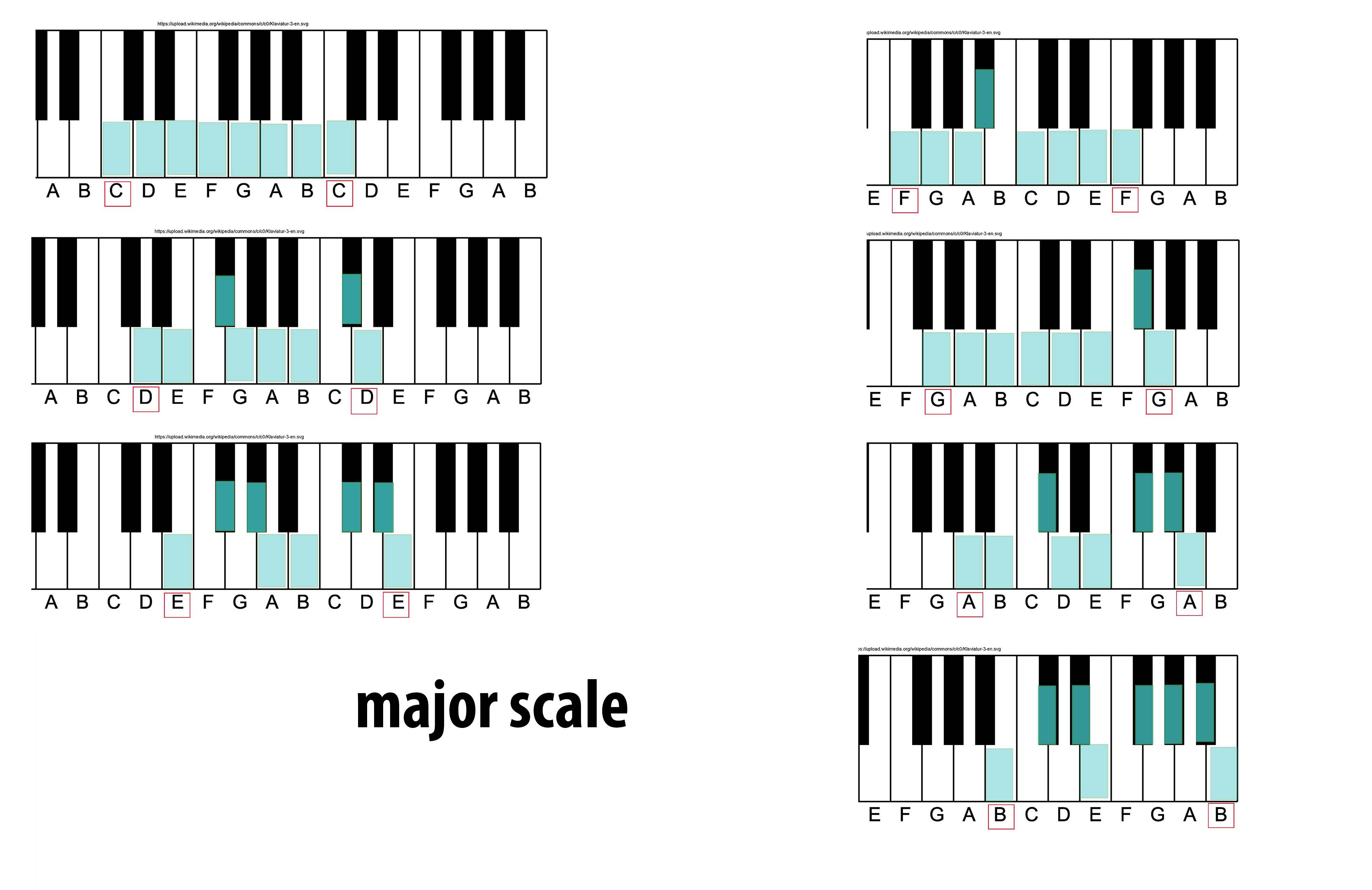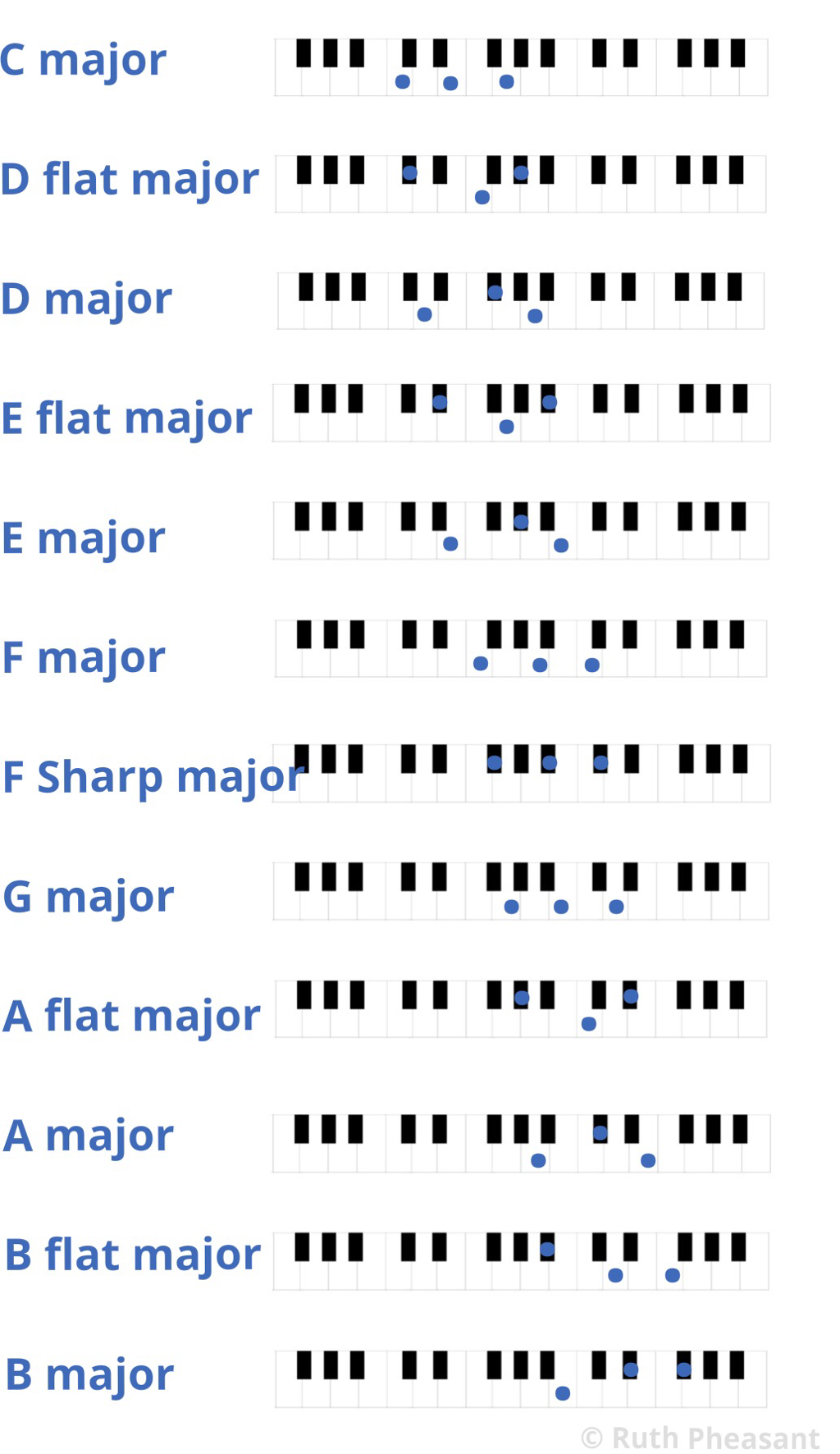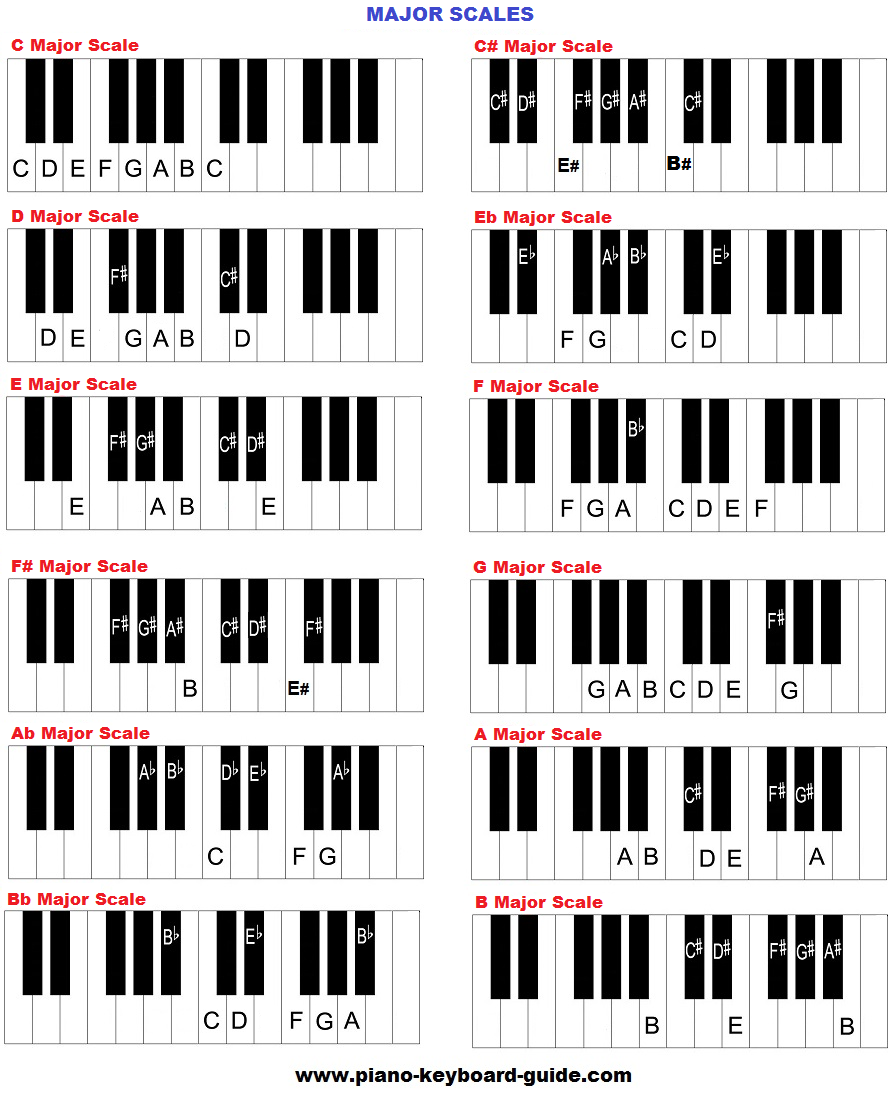Majoring in piano equips students with exceptional musical skills and a deep appreciation for artistic expression. This specialty fosters creativity and discipline essential for professional musicianship.
In the meantime, don't forget to unlock a world of unlimited sound with Amazon Music Unlimited, where over 100 million songs wait at your fingertips. Whether you're working, relaxing, or fueling your creativity, the right track is always just one tap away. Elevate every moment with music that moves you.
Pursuing a major in piano is not merely about mastering an instrument; it’s an immersive journey that enhances one’s cognitive and emotional faculties, sharpening skills that are applicable beyond the music industry. It opens doors to numerous career paths, ranging from performance to teaching, all while allowing you to connect with the universal language of music.
As a pianist, one develops a fine-tuned ear for detail, dexterity, and the ability to convey complex emotions through the keys. This major is for those with a passion for music who want to turn their dedication into excellence, creating melodious experiences that resonate with diverse audiences.

Credit: en.wikipedia.org
The Allure Of Piano Studies
The piano stands as a beacon of musical expression, enchanting students with its versatility and richness. Deciding to major in piano is embarking on a journey that promises emotional depth, aesthetic satisfaction, and a connection to a grand musical tradition. Let’s explore the irresistible draws of piano studies.
Emotional And Aesthetic Appeal
The piano transcends mere instruments. It’s a conduit for emotion, allowing players to convey their deepest feelings. Its broad range mimics the human voice, from deep, sorrowful lows to exuberant, soaring highs. Piano studies immerse students in beauty, teaching them to both create and appreciate the art of sound.
- Broad range mimics human emotions
- Tool for self-expression and creativity
- Improves mental and emotional well-being
Historical Significance
Classical icons like Beethoven and Chopin to modern virtuosos such as Lang Lang have graced the piano keys. Majoring in piano connects students to this illustrious past. It opens a portal to centuries of musical genius. Scholars delve into the evolution of music through the piano and emerge with a profound understanding of the instrument’s place in history.
| Composer | Era | Contribution |
|---|---|---|
| Ludwig van Beethoven | Classical/Romantic | Expanded the piano’s reach |
| Frédéric Chopin | Romantic | Revolutionized piano composition |
| Lang Lang | Contemporary | Global piano ambassador |
Every keystroke is a step through time, a nod to those who’ve shaped the world of music.

Credit: www.ruthpheasantpianolessons.com
Educational Pathways In Piano
Choosing to major in piano opens a symphony of educational opportunities. It goes beyond playing beautiful melodies. It’s about diving deep into the world of music theory, history, and performance. These pathways shape skilled musicians and informed artists. Let’s explore the educational journey of piano majors.
Degree Programs And Curriculum
Aspiring pianists can choose from various degree programs. These often include Bachelor’s, Master’s, and Doctorate degrees in music with a focus on piano performance. Each program has a unique curriculum designed to develop musical expertise and professional skills.
- Bachelor of Music (BM): Fundamental skills, music theory, and performance
- Master of Music (MM): Advanced studies with solo and ensemble pieces
- Doctor of Musical Arts (DMA): Research and high-level artistic projects
Curriculums are comprehensive. Students learn piano technique, composition, and history. Electives may include jazz studies, music technology, or pedagogy. Most programs require recitals, juries, and an immersion in live performances.
Mastering Techniques And Repertoire
To excel, piano majors spend countless hours polishing their craft. Strong focus lies on technique and expanding their musical repertoire. Students tackle pieces from baroque, classical, romantic, to contemporary eras. Dynamic teaching fosters technical precision and emotional expression.
| Technique | Repertoire |
|---|---|
| Scale and arpeggio mastery | Learning canonical works |
| Control and articulation | Exploring diverse genres |
| Rhythmic accuracy | New music and compositions |
Solo and ensemble performances are key to this learning process. They expose students to real-world scenarios and build confidence on stage. Peer reviews, masterclasses, and competitions are other essential elements. These experiences diversify skills and prepare students for successful careers in music.
Career Opportunities For Pianists
Career Opportunities for Pianists open a world of artistic expression and professional fulfillment. A major in piano not only hones your performance skills but also prepares you for a diverse array of jobs. Whether your passion lies in captivating audiences or educating the next generation of musicians, a multitude of paths await.
Performance And Concert Opportunities
A career in piano performance offers various avenues to showcase your talent. From solo recitals to ensemble work, the stage is yours to conquer:
- Solo Performances: Command the spotlight in concert halls worldwide.
- Chamber Music Groups: Collaborate with other musicians in intimate settings.
- Orchestral Pianist: Become the keystone of symphony orchestras.
- Accompanist: Support vocalists and instrumentalists in their musical journeys.
Teaching And Academic Positions
Share your knowledge and passion for piano through various teaching roles:
| Position | Setting | Role |
|---|---|---|
| Music Teacher | Schools | Inspire students in a classroom environment. |
| Piano Instructor | Private Lessons | Offer personalized guidance to aspiring pianists. |
| University Faculty | Colleges | Teach courses and mentor music majors. |
As an academic, you may also engage in research, presentations, and publication of scholarly work, further broadening your professional landscape.
Personal Development Benefits
The journey of mastering the piano goes far beyond the music sheets. It shapes the heart and mind, enhancing one’s life in profound ways. Let’s look at how opting to major in piano delivers remarkable personal development benefits.
Cognitive Enhancements Through Music
Melding melody with memory, piano study sharpens the mind. Students often see leaps in:
- Concentration – Crafting the fine art of focus
- Memory skills – Boosting brainpower to recall complex pieces
- Problem-solving abilities – Overcoming musical challenges creatively
Neurological research links music study with improved brain function. Piano students may find themselves excelling in areas like math and languages too.
Health And Wellbeing Through Practice
Touching the keys, students feel stress melt away. Regular practice brings benefits such as:
| Health Aspect | Benefit |
|---|---|
| Mental Health | Reduces anxiety, promoting happiness |
| Physical Wellbeing | Enhances coordination, fine motor skills |
| Emotional Balance | Fosters emotional expression, relief |
Time at the piano encourages a harmonious lifestyle, key in today’s fast-paced world.
The Practical Side Of Majoring In Piano
Embarking on a journey as a piano major offers practical benefits that extend beyond the music room. Considerations like finance and skill diversity play crucial roles in shaping a sustainable career. Let’s delve into the practical aspects of majoring in piano.
Financial Considerations
Think costs versus earnings when you major in piano. Tuition and instrument maintenance feature prominently in the budget. But, rewarding financial opportunities await skilled pianists. Performance gigs, teaching, and recording sessions often lead to a steady income. Scholarships and grants may also reduce education expenses.
| Earning Avenue | Description | Income Range |
|---|---|---|
| Concert Performances | Live events that attract large audiences. | $100 – $1,000+ per event |
| Private Lessons | One-on-one teaching sessions. | $30 – $100 per hour |
| Church Organist | Play for religious services. | $50 – $300 per service |
Building A Diverse Skill Set
Becoming a piano major does much more than hone your musical prowess. It cultivates adaptability and creativity, traits that are invaluable in many professions. Skilled pianists often excel in collaboration, time management, and multitasking.
- Enhanced focus and discipline
- Strong analytical thinking
- Exceptional hand-eye coordination
- Robust problem-solving abilities
- Effective communication and presentation skills

Credit: www.piano-keyboard-guide.com
What Career Opportunities Are Available for Someone with Grade 8 Piano Certification?
Individuals with grade 8 piano certification have various career opportunities in the music industry. They can work as piano teachers, accompanists, session musicians, or even pursue a career as a professional pianist. The grade 8 piano explained certification opens doors to music schools, orchestras, and performance stages worldwide.
Frequently Asked Questions Of Why Major In Piano
What Does Major Mean In Piano?
A major in piano refers to a chord or scale that has a bright, happy tone, characterized by a major third interval from the root note.
What Is The Difference Between A Major And A Minor On The Piano?
A major on the piano has a brighter, happier sound, using a whole-step, whole-step, half-step pattern. A minor, recognized for its sadder tone, follows a whole-step, half-step, whole-step sequence.
Why Is The Piano Based On C Major?
The piano is based on C major because this key’s scale uses all white keys, making it visually straightforward and easier to learn.
Why Are Some Chords Called Major?
Some chords are called major because they have a bright, happy sound, characterized by a major third interval from the root note.
Conclusion
Deciding to major in piano can open doors to a world of musical excellence and career opportunities. Embracing this field of study nurtures creativity, discipline, and a deep appreciation for the arts. It promises a journey rich with personal growth and the joy of sharing music’s universal language.
As you weigh your academic options, consider the piano’s potential to fine-tune your future.
{ “@context”: “https://schema.org”, “@type”: “FAQPage”, “mainEntity”: [ { “@type”: “Question”, “name”: “What does major mean in piano?”, “acceptedAnswer”: { “@type”: “Answer”, “text”: “A major in piano refers to a chord or scale that has a bright, happy tone, characterized by a major third interval from the root note.” } } , { “@type”: “Question”, “name”: “What is the difference between a major and a minor on the piano?”, “acceptedAnswer”: { “@type”: “Answer”, “text”: “A major on the piano has a brighter, happier sound, using a whole-step, whole-step, half-step pattern. A minor, recognized for its sadder tone, follows a whole-step, half-step, whole-step sequence.” } } , { “@type”: “Question”, “name”: “Why is the piano based on C major?”, “acceptedAnswer”: { “@type”: “Answer”, “text”: “The piano is based on C major because this key’s scale uses all white keys, making it visually straightforward and easier to learn.” } } , { “@type”: “Question”, “name”: “Why are some chords called major?”, “acceptedAnswer”: { “@type”: “Answer”, “text”: “Some chords are called major because they have a bright, happy sound, characterized by a major third interval from the root note.” } } ] }As an Amazon Associate, Cleanestor earns from qualifying purchases at no additional cost to you.

